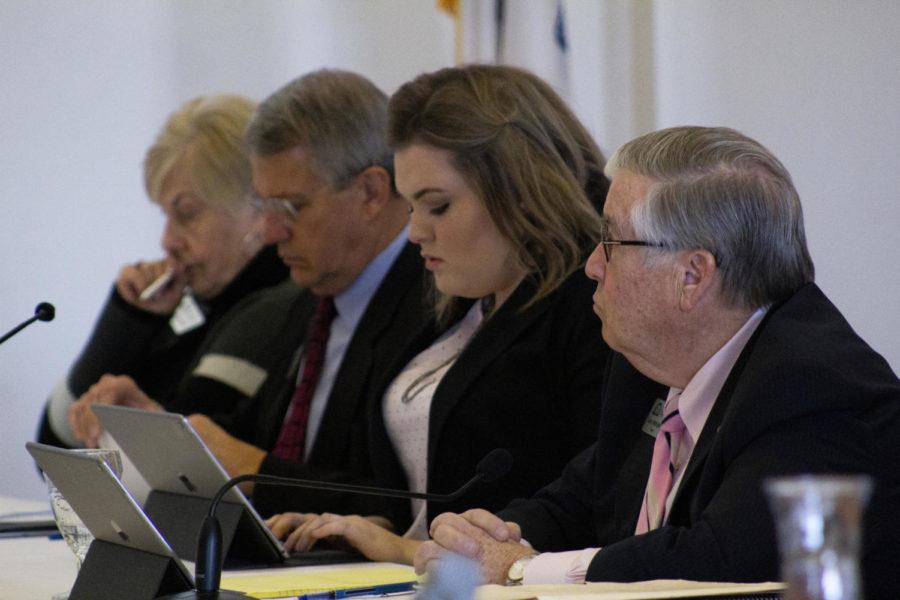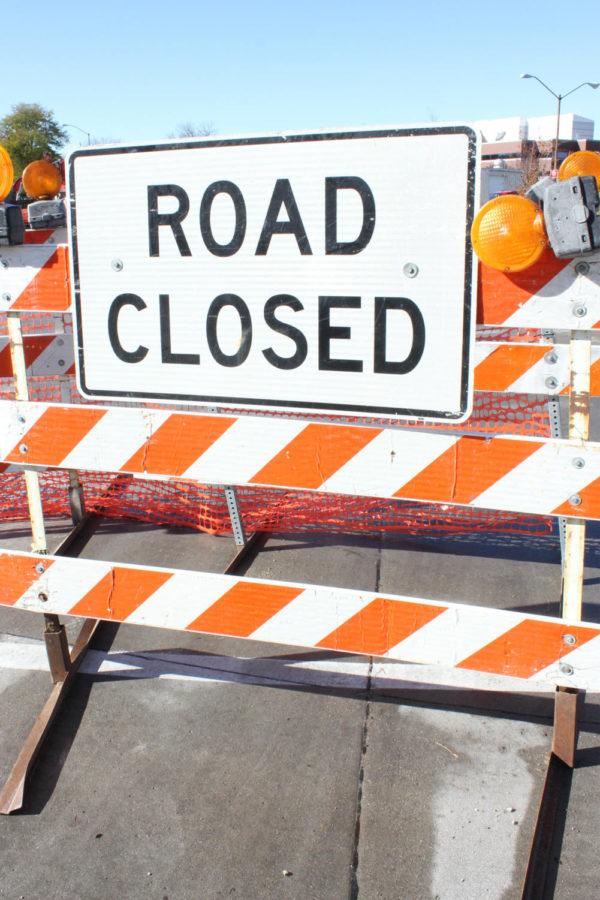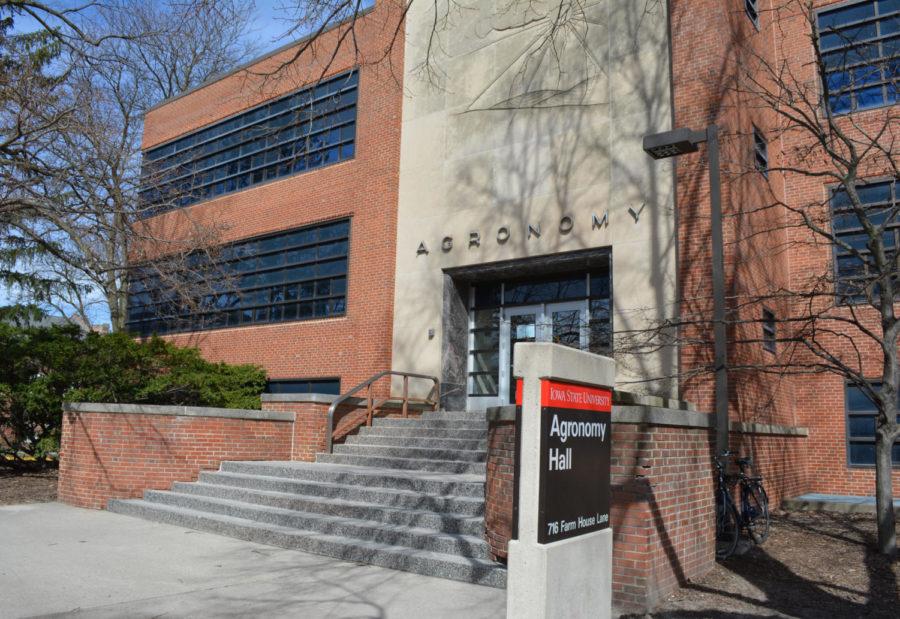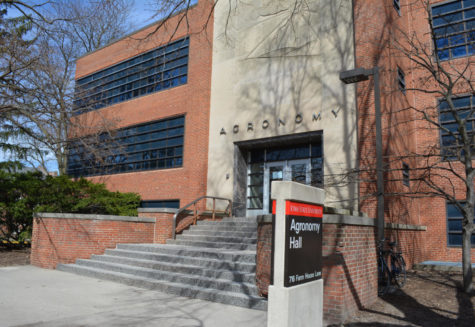Board of Regents to hold meeting for first read of tuition increase
Kennedy DeRaedt/Iowa State Daily
Regents Nancy Boettger, Milt Dakovich, Rachael Johnson and Larry Mckibben (left to right) listen to the Investment and Cash Management Report for the quarter on Feb. 27.
April 30, 2019
Gov. Kim Reynolds’ education budget is $985 million. Of that $985 million, $12 million is provided to regent institutions, $6 million less than what the Board of Regents requested.
In accordance with the release of funding, the Board of Regents has set forth its proposal for tuition and fees for the 2019-20 school year.
Iowa State undergraduate students can expect to see a $331.50 increase in tuition for residents and $1,115.50 increase for nonresidents. This is a 3.9 percent increase for residents and a 4.9 percent increase for nonresidents.
$29.50 of the cost comes from mandatory fees.
$18.50 of the fees go to student activities, with $2.50 going to Student Government and $16 going to the Daily to provide “a permanent funding source to sustain business operations,” as stated in the executive summary by the Board.
The final $11 is a student services fee for CyRide. The fee is intended to offset “fuel and labor as well as [maintain] quality and safe service due to increasing demand,” also according to the summary.
The rates other than the resident undergraduate rate are “recommendations that come from the universities to the Board for consideration,” said Josh Lehman, senior communications director for the Board of Regents. “So those are individual university decisions.”
Additionally, Iowa State plans to make changes to its differential tuition rates. Differential tuition rates are amounts charged additionally on top of base tuition rates to offset costs for things such as skills development programs and new technology in specific programs.
“ISU’s goal is to simplify differential tuition rates over three years by phasing into just two differential rate changes,” as stated in the summary.
Rate A includes students majoring in science, technology, mathematics and architecture programs as well as students in animal science, biology, computer science, industrial design, natural resources ecology and management, biological/pre-medical illustration, genetics and microbiology.
The rate sets forth “an academic year differential of $1,600 (established in the 2018-2019 academic year and to be adjusted for annual rate increases) for resident, non-resident and international students,” according to the summary.
Rate B affects students whose majors are in the Ivy College of Business, College of Engineering, and the agricultural systems technology and industrial technology programs in the College of Agriculture and Life Sciences.
The secondary rate creates “An academic year differential of $2,612 for resident students, and $3,026 for non-resident and international students,” also according to the summary.
Based on these board estimations, the estimated cost of attendance for resident undergraduates at Iowa State University is $21,939.90.
“Last November, the board outlined a five-year tuition model for resident undergraduates,” Lehman said. “Part of the model for Iowa and Iowa State students in their three primary areas of funding are state appropriations, tuition and then savings and reallocation.”
Lehman explained how if the board was allocated its $18 million previously requested then tuition would have only gone up by 3 percent. If the board was granted none of its request then tuition would have increased by 5 percent.
“The Legislature has passed, now the Governor hasn’t signed it yet, but the Legislature has passed a $12 million increase,” Lehman said. “So, it’s not the full request, but it is some money.”
The partial funding makes tuition costs fall between the 3 and 5 percent increase.
“That’s where the 3.9 percent increase for Iowa and Iowa State students come from,” Lehman said.
At 2 p.m. Wednesday the Board of Regents will hold its “telephonic meeting” where there will be the initial reading of tuition costs.
The approval of tuition rates is scheduled for the Board’s next meeting in June.
The meeting will be June 4-6 at Iowa State University and will cover annual evaluations, committees and a board meeting. Live streaming and agendas of the Board’s activities can be found at www.iowaregents.edu.

















